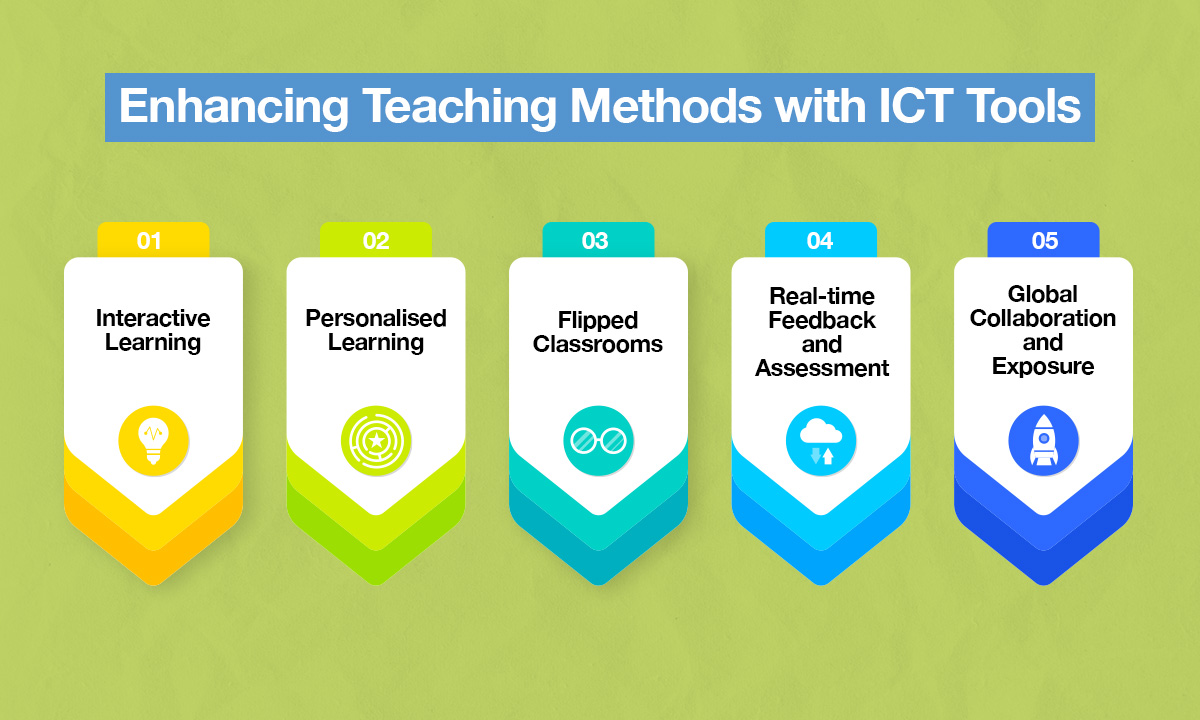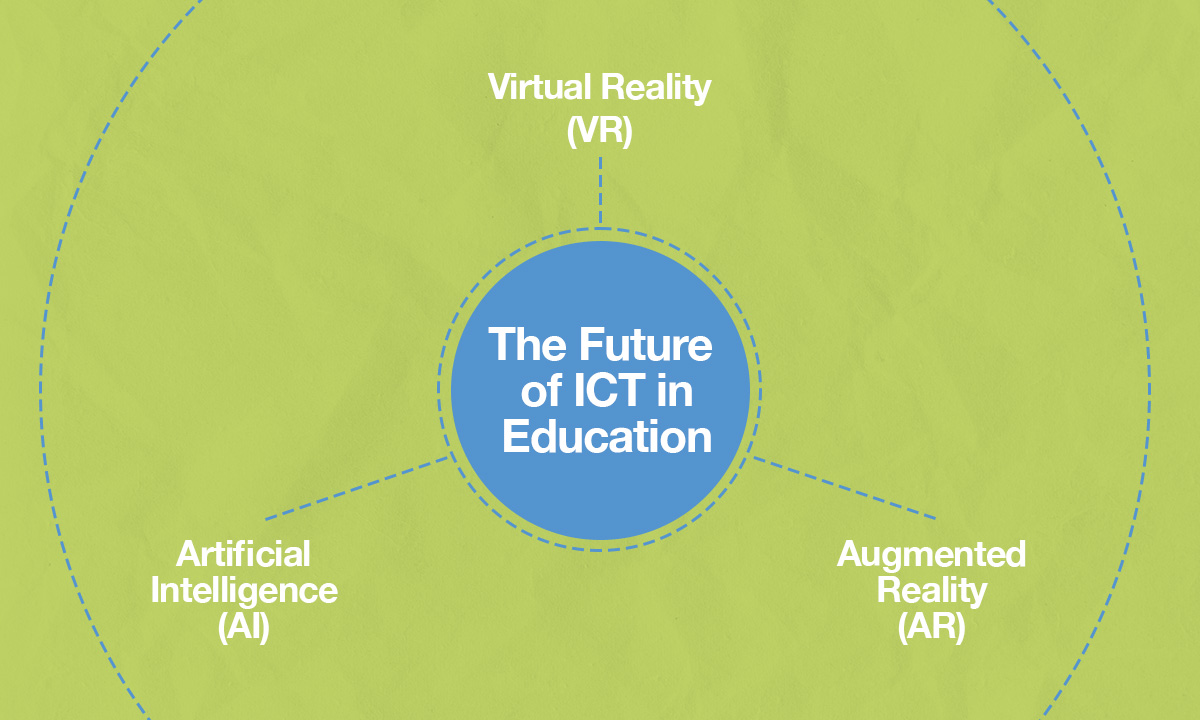




In today's digital age, the role of ICT in education has become increasingly significant, particularly in the context of online learning. ICT, or Information and Communications Technology, refers to the integration of digital tools and resources in educational settings. Whether through virtual classrooms, interactive whiteboards, or learning management systems, ICT in education has revolutionised the way teaching and learning take place. With the rise of online learning platforms, ICT tools are not just enhancing the quality of education but also making it more accessible and engaging for students across the globe.
The importance of ICT in education cannot be overstated. From personalised learning
experiences to global collaborations, ICT tools are transforming the traditional classroom into a dynamic, interactive environment. As the world shifts towards a more digital approach to education, understanding how ICT enhances teaching methods in online learning is crucial.
The integration of ICT in education has bridged the gap between conventional teaching methods and modern educational needs. In an era where students are digital natives, accustomed to technology in their daily lives, traditional methods alone may not suffice. Incorporating ICT tools allows educators to meet the demands of this new generation of learners, making education more relevant and effective.
For instance, online learning platforms enable students to access educational resources from anywhere, at any time. Whether through video lectures, digital textbooks, or real-time quizzes, ICT provides the flexibility and accessibility needed for today's learners. The importance of ICT in education also extends to inclusivity, ensuring that learning is accessible to students with diverse needs, including those with disabilities or those living in remote areas.

One of the most notable impacts of ICT in education is the enhancement of teaching methods. Teachers now have access to a wide array of digital tools that enable them to deliver lessons more effectively. Here are some key ways ICT is improving teaching methods in online learning:
With the help of ICT, learning has moved beyond the passive reception of information to active participation. Tools such as interactive whiteboards, educational apps, and virtual labs allow students to engage with the content in real-time. This shift from traditional lecture-based teaching to interactive, student-centred learning has proven to be more effective in retaining knowledge.
ICT tools like quizzes, polls, and discussion forums available on online learning platforms make learning more engaging and ensure that students can interact with both the material and their peers.
One of the biggest advantages of integrating ICT in education is the ability to tailor learning experiences to individual students' needs. Through data analysis and tracking tools, teachers can assess each student's progress and customise their learning path accordingly.
The importance of ICT in education lies in its ability to accommodate different learning styles and paces.
ICT has paved the way for innovative teaching methods such as the "flipped classroom" model. In this approach, students learn the theoretical aspects of a lesson at home through videos or digital content and then apply what they have learned during class time through practical activities and discussions. ICT tools make this possible by providing platforms where teachers can upload pre-recorded lessons or assign reading materials ahead of class.
This method encourages students to take responsibility for their learning and come to class prepared to engage in deeper discussions or collaborative projects. Online learning platforms further facilitate this by offering a space for students to interact with the material before and after class.
ICT in education has significantly improved the process of assessment and feedback. Teachers can now use digital platforms to create quizzes, tests, and assignments that can be automatically graded, providing instant feedback to students. This not only saves time but also helps students understand their mistakes and correct them in real-time.
Moreover,online learning platforms allow teachers to track students' progress over time, identifying areas where they may need extra support.
ICT has opened doors to global collaboration, allowing students and educators to connect with peers and experts from around the world. Through video conferencing, social media, and collaborative online platforms, students can participate in international projects, discussions, and competitions. This global exposure not only broadens their educational experience but also prepares them for a more interconnected world.
Online learning platforms equipped with collaborative tools enable students to work together, regardless of their physical location. This fosters teamwork, cultural exchange, and a deeper understanding of global perspectives.
While ICT tools are beneficial for students, their effective use depends largely on the teachers. Educators must be well-trained to integrate ICT into their teaching methods. The importance of ICT in education extends to teacher training, ensuring that they are proficient in using digital tools to enhance learning.
Online learning platforms offer numerous professional development opportunities for teachers. From webinars and online courses to digital resource libraries, teachers can continuously improve their skills and stay updated with the latest educational technologies. This not only benefits the teachers but also ensures that students receive high-quality, technology-driven education.
Despite the many benefits of ICT in education, there are still challenges that need to be addressed. One of the major issues is the digital divide – not all students or schools have access to the necessary technology or high-speed internet required for online learning. This can create disparities in education, particularly for students in rural or economically disadvantaged areas.
Moreover, the cost of implementing ICT infrastructure can be high for some institutions. Schools need to invest in devices, software, and technical support to ensure the smooth operation of their online learning platforms. However, many governments and organisations are working towards bridging this gap by providing funding and resources to schools in need.
Another challenge is ensuring that both teachers and students are comfortable using the technology.
The future of ICT in education looks promising, with advancements in technology continuing to shape the way we teach and learn:

At The Class of One (TCO1), we understand the importance of ICT in education and how it can transform the learning experience. Our cutting-edge online learning platform leverages the best ICT tools to provide a personalised, engaging, and flexible learning environment for students of all ages. With a curriculum designed to challenge and inspire, TCO1 is committed to delivering a world-class education from the comfort of home.
If you are looking for a school that combines quality education with the latest ICT innovations, The Class of One is the perfect choice.